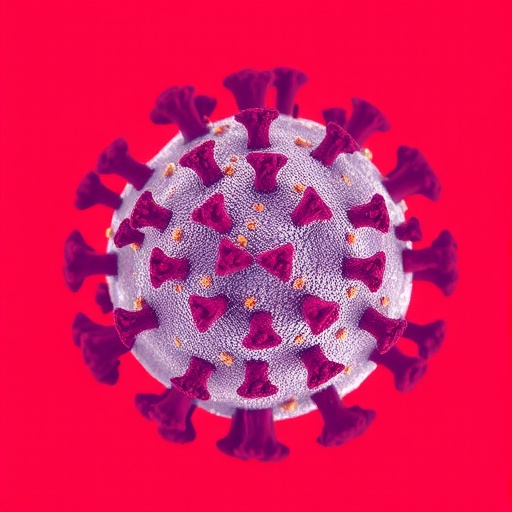The COVID-19 pandemic has drastically transformed the way healthcare services are delivered across the globe, revealing acute vulnerabilities in various sectors. One particular area that has garnered significant attention is home- and community-based services (HCBS) for older adults and individuals with disabilities. Researchers from the United States have undertaken an extensive study to examine how service utilization and unmet needs shifted during the pandemic. Their findings shed light on critical service gaps, surrounded by the context of healthcare access, policy adjustments, and socio-economic factors that have markedly influenced service delivery.
The research was initiated in response to the urgent need for understanding the implications of the pandemic on HCBS, which are essential for fostering independence and quality of life among vulnerable populations. Researchers have spotlighted that before the pandemic, home- and community-based services were on the rise, but the sudden shift in operational landscapes during the COVID-19 crisis revealed underlying deficiencies. As in-person services were curtailed due to health concerns, many individuals found themselves in a precarious situation, experiencing increased isolation and heightened health risks.
One of the key findings from the study indicates that service utilization plummeted as many older adults chose to forgo necessary services out of fear of exposure to the virus. Interactions that once formed the backbone of HCBS—such as personal care assistance, social services, and rehabilitation therapies—became exceedingly rare. The research highlighted that about 40% of participants reported a significant decrease in their usual service use during the pandemic, illustrating a stark reality of how vital services can quickly vanish under crises.
Emerging data revealed that unmet needs surged among individuals relying on these services. Many elders reported neglect of critical health and social needs, ranging from routine medical assessments to crucial meal preparation services. The study pointed out that families who typically relied on HCBS were suddenly thrust into caretaker roles, which often resulted in elevated stress levels and exacerbated caregiver burden. This shift not only impacted the quality of care provided but also raised questions about the sustainability of informal caregiving arrangements.
The study also documented the responses implemented by service providers to address some of these challenges. Many organizations pivoted to telehealth options and virtual engagement strategies to continue providing necessary support remotely. While some older adults adapted well to these new technologies, a notable segment remained disconnected due to technological barriers, lack of familiarity, or access issues. This digital divide manifested stark disparities among different demographic groups, emphasizing that technological solutions alone cannot fully meet the needs of all service users.
Alongside these adaptations, policymakers scrambled to implement emergency measures. Funding allocations were expedited to support HCBS, and waivers were introduced to enable more flexible service delivery models. Despite these efforts, many researchers argue that these responses were reactive rather than proactive. There’s a growing consensus that a more robust, preemptive framework is essential to ensure continuity of care during future public health emergencies, safeguarding older adults and individuals with disabilities.
Moreover, the findings of this research have significant implications for post-pandemic recovery plans. A critical theme that emerged was the need for integrating lessons learned from the pandemic into long-term service planning. By acknowledging the gaps highlighted during this crisis, stakeholders have a unique opportunity to forge a more resilient HCBS infrastructure. This includes advocating for sustained investments in technology and infrastructure that enhance service accessibility.
The study concluded with a call to action for healthcare professionals, policymakers, and community leaders. It emphasized collaboration between public health authorities and community-based organizations to build sustainable solutions that acknowledge the complexity of service provision. Stakeholders are urged to engage with service users, ensuring their voices and experiences are integrated into the redesign and funding of HCBS programs moving forward.
In a world still reeling from pandemic effects, it’s imperative to reflect on the lessons learned and ensure that the vulnerabilities of older adults and individuals with disabilities are adequately addressed. The continuation of HCBS must not merely survive the pandemic; it should rather emerge stronger, more adaptable, and better equipped to meet the needs of our aging population. The findings reported in this study serve as a crucial benchmark that underscores the need for ongoing research, policy engagement, and community solidarity.
Donors and stakeholders in the health sector are called upon to scrutinize initiatives aimed at equipping HCBS with disaster preparedness plans that preserve service continuity while ensuring the safety and well-being of providers and clients alike. It’s crucial to recognize that community resilience hinges on the capacity to respond to both immediate challenges and long-term trends that affect health service needs.
As society looks toward a future shaped by both the repercussions of COVID-19 and impending demographic shifts, the redesigning of home- and community-based services cannot be emphasized enough. These services are vital lifelines for millions, and thoughtful, data-driven, and compassionate approaches will ultimately dictate how effectively these services can pivot and evolve, ensuring that every individual receives the care they deserve, especially in times of crisis.
Our journey through this pandemic has unveiled not only shortcomings but also opportunities—opportunities for building a healthcare ecosystem that is responsive, inclusive, and capable of supporting the most vulnerable. The imperative for transformational change in home- and community-based services is now clearer than ever as we navigate forward, striving toward a more equitable and resilient future.
Subject of Research: Changes in service use and unmet needs in home- and community-based services in the United States during the COVID-19 pandemic.
Article Title: Changes in service use and unmet needs in home- and community- based services in the United States during the COVID-19 pandemic.
Article References:
Parikh, R.R., Shippee, T.P., Wolf, J.M. et al. Changes in service use and unmet needs in home- and community- based services in the United States during the COVID-19 pandemic.
BMC Geriatr 25, 733 (2025). https://doi.org/10.1186/s12877-025-06396-5
Image Credits: AI Generated
DOI: 10.1186/s12877-025-06396-5
Keywords: HCBS, COVID-19, service utilization, unmet needs, older adults, community services, healthcare policy.




